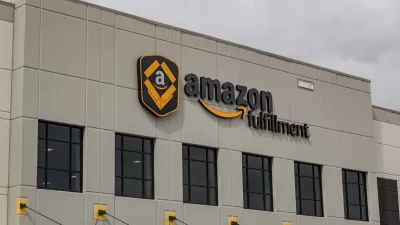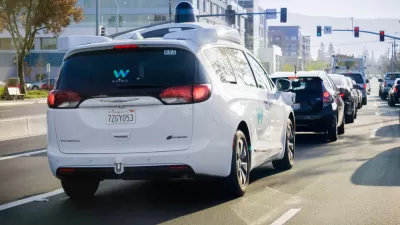Nina Rappaport of UrbanOmnibus explores the history of the urban factory, examining the social, economic, and environmental benefits of the modern vertical factory industry.
Rappaport writes:
"In the future, cleaner and greener production methods could make vertical urban factories the new engines of urban revitalization, encouraging both economic growth and urban vitality as well as offering more sustainable solutions with production systems such as just-in-time manufacturing or increases in recycling."
Rappaport goes on to discuss the various advantages that a modern vertical factory system could provide, including: sustainable practices, added social value to a community, less CO2 emissions, and money-saving strategies.
There is also the possibility that, "Vertical urban factories could produce energy rather than just consume it, and workers could recycle goods, rather than spew them out. This in turn would close the loop of making, consuming and recycling as part of a new urban spatial and economic paradigm."
FULL STORY: Vertical Urban Factory

Planetizen Federal Action Tracker
A weekly monitor of how Trump’s orders and actions are impacting planners and planning in America.

Map: Where Senate Republicans Want to Sell Your Public Lands
For public land advocates, the Senate Republicans’ proposal to sell millions of acres of public land in the West is “the biggest fight of their careers.”

Restaurant Patios Were a Pandemic Win — Why Were They so Hard to Keep?
Social distancing requirements and changes in travel patterns prompted cities to pilot new uses for street and sidewalk space. Then it got complicated.

Platform Pilsner: Vancouver Transit Agency Releases... a Beer?
TransLink will receive a portion of every sale of the four-pack.

Toronto Weighs Cheaper Transit, Parking Hikes for Major Events
Special event rates would take effect during large festivals, sports games and concerts to ‘discourage driving, manage congestion and free up space for transit.”

Berlin to Consider Car-Free Zone Larger Than Manhattan
The area bound by the 22-mile Ringbahn would still allow 12 uses of a private automobile per year per person, and several other exemptions.
Urban Design for Planners 1: Software Tools
This six-course series explores essential urban design concepts using open source software and equips planners with the tools they need to participate fully in the urban design process.
Planning for Universal Design
Learn the tools for implementing Universal Design in planning regulations.
Heyer Gruel & Associates PA
JM Goldson LLC
Custer County Colorado
City of Camden Redevelopment Agency
City of Astoria
Transportation Research & Education Center (TREC) at Portland State University
Camden Redevelopment Agency
City of Claremont
Municipality of Princeton (NJ)




























